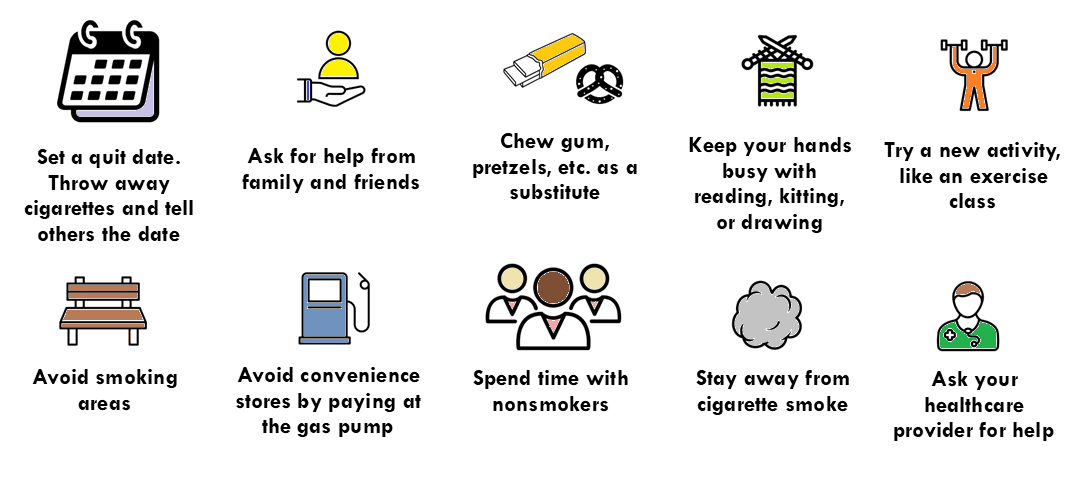 Click here for some tips for Care Partners
Click here for some tips for Care Partners
TIPS FOR PEOPLE WITH DIABETES
People with diabetes who smoke have higher risks for serious complications, including:
-
Heart and kidney disease
-
Poor blood flow in the legs and feet, which can lead to infections, ulcers, and possible amputation (removal of a body part by surgery, such as toes or feet)
-
Retinopathy (an eye disease that can cause blindness)
-
Peripheral neuropathy (damaged nerves to the arms and legs that causes numbness, pain, weakness, and poor coordination)
Quitting smoking will benefit your health right away. People with diabetes who quit smoking are better able to manage their blood sugar levels.
HEALTH BENEFITS WHEN YOU QUIT SMOKING
-
Increased blood flow
-
Increased energy
-
Improved breathing
-
Improved general health
-
Decreased risk of heart and eye disease
-
Decreased risk of lung disease, lung cancer, and other cancers
-
Decreased effects of secondhand smoke on your children, grandchildren, loved ones, and pets
TIPS FOR QUITTING

 HOW CARE PARTNERS CAN HELP HOW CARE PARTNERS CAN HELP
If your partner is in the early stages of trying to quit smoking:
-
Help them remove things from their house that remind them of smoking.
-
Help them make plan
-
Suggest they talk to their primary care team about whether nicotine gum, lozenges, patches or other quit smoking aids could help them stick with their new routine!
If your partner is ready to cut down or quit soon:
-
Help your partner decide specifically how much they will cut down on smoking, starting on a specific date. They can work on preparing for their change in smoking before that date.
-
Suggest that your partner call their healthcare professional to find out about all the ways they can help them quit smoking, including medications and patches, quit smoking groups, individual counseling in person or by phone, and even supportive text messages.
If your partner is not ready to cut down or quit soon:
-
It can backfire to talk with your partner about smoking too much if they are not ready to quit.
-
Pay attention to whether your partner mentions thoughts about changing their smoking habits, and when they do, encourage them to keep talking with you about these ideas. Let them know you are there to help when they are ready to make a change.
|
 Click here for some tips for Care Partners
Click here for some tips for Care Partners
